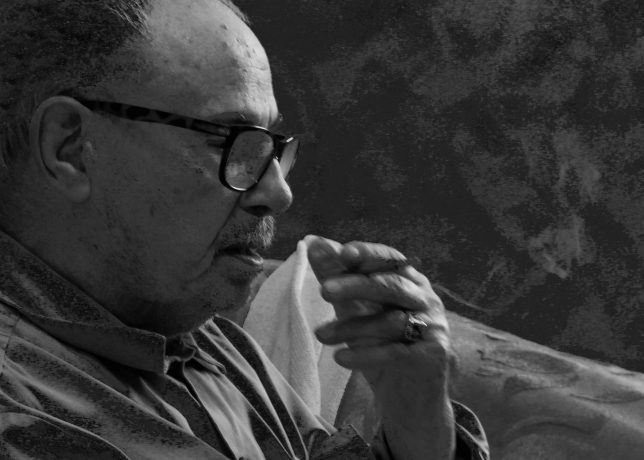Primary season has begun. Eight states have already held them and the numbers are beginning to come in.
November is going to be significant, no matter what the outcome, because it may tell us something about who we think we are. Midterms are notorious for low voter turn-out. That has to change. After a year and a half of incompetence (actually much more than that, but I’m addressing the current manifestation of mediocrity) we cannot afford to be our usual “oh, who cares about midterms, it’s not like they’re important” attitude that usually seems to dominate at them.
A few things to keep in mind. Midterms have traditionally been decided by far less than half of eligible voters. Which means that the winning party usually wins by virtue of less than a quarter of the voters. The rest of us then spend the next two years complaining about the idiots in congress etc, but rarely do the people who blew off their civic responsibility (and who are often the loudest complainers) own up to the mess they allowed to occur. Well, to those of you who fail to vote, two things: you have basically permitted yourselves to be irrelevant; and you will probably be bypassed by the generation coming up. Until that happens, though, the rest of us have to suffer the consequences of your voicelessness. You did a number on the country this last election by sitting it out. If you’re happy with the results, well, so be it. But if you’re one of the ones regularly complaining about the state of the country, all I can say is, either show up from now on or shut up.
Moving on.
I do not intend to write another thing about Trump after this. As far as I’m concerned, he is a giant ball of mediocrity. He is, however, being consistent according to his past. His “style” if you will is to dance around and take advantage of openings like a boxer and punch. He has no plan in the usual sense. His goal is to win the present argument and hope it comes out in his favor. The trail of bankruptcies, half-finished ventures, and lawsuits is a testament to this. He is not orderly, coherent, or conscientious. He is an improviser. It may well be that he is someone you might want on your negotiating team going into a difficult discussion, but he should never be the lead. There is no evidence that he has any longterm strategy. He is all about tactics. Example: note the photographs of the recently concluded G7. The roundtable, where every single person attending has a collection of papers, notebooks, reference material at their seat—except Trump. He did not prepare, he was not prepared. He was looking for a chance to “go with his gut” as he likes to say.
No doubt people who have done business with him have made money. He’s in that game, stirring the pot, and just by the law of averages certain people will know how to play, and will make out well. Some of his ventures have been “rescued” by people who then turned them around and made them work. Let me be clear—there’s nothing especially wrong with that. If everyone at the table is there to play the same game and they all know the rules and are willing to take the risks, fine. That’s a species of American business. You improvise, you deal, you roll with the punches, you look for some way to land on your feet, and sometimes things align and it looks like you came out okay. A survey among those with whom he has done business in the past reveals a very mixed assessment, but mostly he is regarded by some of our more consistently successful entrepreneurs as a rogue factor at best, a rank amateur, or a lucky incompetent at worst. Even so, that’s a game and he plays it. It’s questionable if he ever gets the result he started out wanting, but the definition of a win in this case is fluid. If he walks away able to play the next round—and can find people willing to play it with him—that counts as a win.
You can’t lead a country that way. You have to know what the end result is supposed to be and thus far there is no blueprint.
This would not be as great a problem as it is if we had a congress that possessed collective competence. The problem is, congress is filled with people who are either cut from the same cloth or are just as mediocre. The majority in control seem incapable of accepting that whatever vision they may have carried into the job is not working out and maybe, just maybe they have to compromise on some things in order to do the People’s Business. Many of them are looking at Trump in alarm, but those who might be in positions to do something are caught by the fact that large parts of Trump’s tactics align with what they’ve been trying to do for years, namely destroy the safety net, establish (often unstated) class hegemonies, and hand over as much power and resources to those they believe will work to the benefit of the country as a whole from the private sector. They have done this under the guise of “getting the government out of people’s lives” but then turn around and enact laws that allow private corporations to get very deeply into people’s lives. They see no contradiction in this. Since those corporations are dependent on government assistance to do what they intend to do, it ought to be obvious that taking one hand off so the other can replace it is little more than a shell game wherein the only difference is who gets scammed.
Trump has been the beneficiary of a long trend in this direction. He did instinctively understand that about the Republican Party, so that just about everything he said, including the way he said it, conformed to the deep desires of the GOP, its funders, and its base. His crudity exposed it to the glaring light of day and he managed to turn that into a positive for his campaign. He parlayed what we mistake as “plain speaking” and honesty into a slogan-driven campaign that eschewed nuance, comprehension, and decency and embraced vulgarity, bluntness, and condescension on behalf of a strain of impatience, intolerance, and frankly ignorance parading as common sense.
A few words about that. Judging by the evidence, what he tapped into can be called a collapse of caring capacity among a certain strain of self-identified American Firsters. Some decades ago the lid came off of a Pandora’s Box of vileness in the American collective culture—racism, misogyny, greed, all supported on a deep loam of myth that extols a readiness to do violence, ignore what is shown to be weakness, and an assumption that the successful American is somehow the product of an elemental “natural man” model of human nature, that if left alone we are all basically successful, entrepreneurial, independent, and highly competent. This is where all the arguments about “level playing fields” come in. One faction of our culture assumes we already have that and people complaining that the system, however you define it, is stacked against them are only seeking unfair advantage. Admitting this latter to be true opens the possibility that our renowned self reliance is also a fable and that there is no such thing as an Independent American, not in the sense intended. It attacks a self image we have used to push ourselves up various ladders since we claimed national independence. The idea that we all rely on others and on advantages not of our creation to do anything runs counter to that myth.
Most of us know better. Some of us know better but have found advantage in perpetuating that myth. Some people really don’t seem to get it. They don’t want to accept that their skin color, at a minimum, can be an advantage or a disadvantage. We want to believe that ability and merit are all that matter.
Trump’s hardcore supporters not only don’t want to believe it, they are willing to reject the idea with prejudice, and use Trump as their poster boy. They see all criticisms of America, his boorishness (and by extension theirs), charges of sexism and racism, as nothing but barriers intentionally placed to prevent them from being recognized for their innate greatness.
More, they seem to believe that all the people they see as taking unfair advantage have only done so by virtue of certain elected officials who were “on their side” in opposition to them. Now they have “their guy” in charge and so advantage will accrue to them.
Never mind the people who came to depend on certain progressive social policies who are now losing them and can’t understand why. Let’s just look at business. These tariffs are punitive. But they will likely not hurt the countries they are ostensibly leveled at nearly as badly as they will hurt home industries. Yet this has been one of the demands of a certain mindset for a long time—why aren’t we charging tariffs on those imports? Can’t those people in Washington see that “unfair competition” is destroying American business?
But the costs of tariffs will fall massively upon the very businesses they’re supposedly meant to protect.
Why? Because the world is more complex than such simply thinking.
It might not even be a bad idea, to adjust import duties, but not this way. This is where his mediocrity manifests destructively. Instead of using a scalpel, he used a hammer. (Perhaps understandably so, since his “expertise” is overwhelming in real estate. He even compared his recent agreement with North Korea to a real estate deal. Pay attention—this is going to cause serious problems. On the one hand, real estate is seen as a longterm, tangible commodity, but the deals surrounding it are almost always short term, high profit affairs that seek a quick agreement so the parties involved can take their money and walk away as quickly as possible. Any longterm benefit goes to banks, and we’ve seen how well they manage such things.)
The average American has been under the idea that the last forty or fifty years of international trade dealings have been in favor of the rest of the world to our detriment. The basis of this belief is a holdover from the post-World War II period when we were actively trying to help rebuild a devastated world. We understood in our bones that if the imbalances of the 19th Century and the injustices of the post World War I era continued, we would be facing another calamitous war in the near future. In order to do avoid that calamity, certain international conditions had to change.
When engaging in this resulted in the economy of the 1950s and 1960s, no one complained. We had the technology, the labor pool, and the financial resources and it put millions to work at high paying jobs which many people came to believe would be the way things were going to be from now on. In reality, the perceived “loss” of American hegemony has been the result of our success. The world is today as it is because we were tremendously successful. But obviously that meant our relative status would change. As the world recovered and the global economy took shape, industries grew in places where they previously did not exist and in those places where they had, things became more efficient and productive. The novelty of imported automobiles in the 1960s, which were the brunt of jokes then, have now become part of the accepted, normal landscape, including factories for such cars being built and operated on American soil. For better or worse, the world is catching up, and consequently the American worker has been complaining about those “lost” jobs when by the end of the 1970s the proverbial writing was on many walls.
But as a country we adapted to the new conditions and the path forward has been made obvious—we will live in a global economy.
(An aside here. I write science fiction. One of the main conceits of SF for decades has been a global government and economy. Borders would become lines on maps, movement relat8vely unrestricted. We saw some of what this would look like in the EU. But in order to achieve that, some things must change, and one of them is the idea that any one country gets to be “in charge.” I think the erosion of that myth has been one of the drivers of the reaction that put Trump in office. Some Americans want to believe in American Exceptionalism. The idea that we might be just one of the club seems a step down, nationally. What they see in Trump—and what his performance at the G7 supports—is someone who is willing to validate their perceptions. The whole “Make American Great Again” appeal is far broader than the racial aspect (make America White again), which is part of it. It’s born out of an impression that there was a time we could do what we wanted and the rest of the world listened to us. Well, that was never fully or legitimately the case, and by the end of the 1970s everyone should have realized it. But comforting illusions are difficult to dismiss and when someone comes along willing to tell us that they aren’t illusions, that we can be that way, again or otherwise, reason takes a back seat to national pride.)
Unfortunately, most of our problems cannot be laid at the feet of international trade. Our problems are internal and Trump is doing nothing to address them. By now that should be clear. And these tariffs and his juvenile exhibition at the G7 will do far more harm than such fantasies of a Triumphant America cherished by our own strain of authoritarian absolutists could possibly be worth.
But the reason I intend to stop writing about Trump (and I admit I may have occasion to do so regardless) is that Trump is not the problem. He is representative of a point of view that is, intentionally or otherwise, wrongheaded and in many ways toxic. When arguing about him with his supporters, a curious thing happens. The conversation ends with the first criticism. Even in instances where the facts underlying the criticism are inarguable, the Trump supporter shuts down and will concede nothing. (If you could argue about the issue without ever naming him, you might find a different reception.) This has become the flip-side of Obama Derangement Syndrome. When you criticize Trump to a supporter (just as when you tried to defend Obama to a detractor), you really aren’t talking about Trump anymore—you’re talking about your conversant. At the first volley, they think they know who and what you are, walls descend, the conversation is over, because now it is tribal. You aren’t criticizing Trump in their minds, you’re criticizing them.
Trump is stomping on and tearing up agreements and damaging relationships which have taken, in some instances, 70 years to build, acting as he assumes his supporters want him to act. There is no regard for consequence because, after all, how will this hurt him? He has billions, he’ll be fine. He can shit all over our allies and throw hissy fits about trade and never miss a meal.
His cheerleaders with considerably less reserves will pay for all this.
But just consider one aspect of this performance. The idea that America is supposed to come out of this more respected, or more feared, is a pitiful ambition when by acting this way he is proving that America cannot be trusted. When we have to go to our allies (or former allies) and say “This needs to be done” they can, and probably will, say “Maybe, but not with you. We can’t depend on your keeping your word.”
There may have been ways to renegotiate some of these agreements to gain a bit. But not this way. These are playground tactics. All he is doing is destroying the confidence we really did once command from others.
But this isn’t really about Trump. This is about the walking wounded who put him in office and still think he’s doing a great job, even as they lose what health care they had and see their last remaining jobs disappear because local companies go under, broken by the burden of higher costs for imports they can’t function without. They put their faith in a Pied Piper and he’s leading them all to a cave which is about to collapse.
We will survive. America is a big place and there is much good here. In some very important ways, we are great and never stopped being so, just not in the blunt-force-trauma ways Trump supporters seem to want. But it should never have been this hard or this costly to get to the new condition we will have to embrace in order to live on this planet and do all the worthwhile things. It’s not 1955 anymore and it never will be again.
I hope we will be better. We can be. But maybe we just have to molt, get rid of the old skin, and leave this nonsense behind.
In the meantime—vote. Help others to vote. If you don’t vote, you surrender you voice. None of this will work without participation. Vote.






